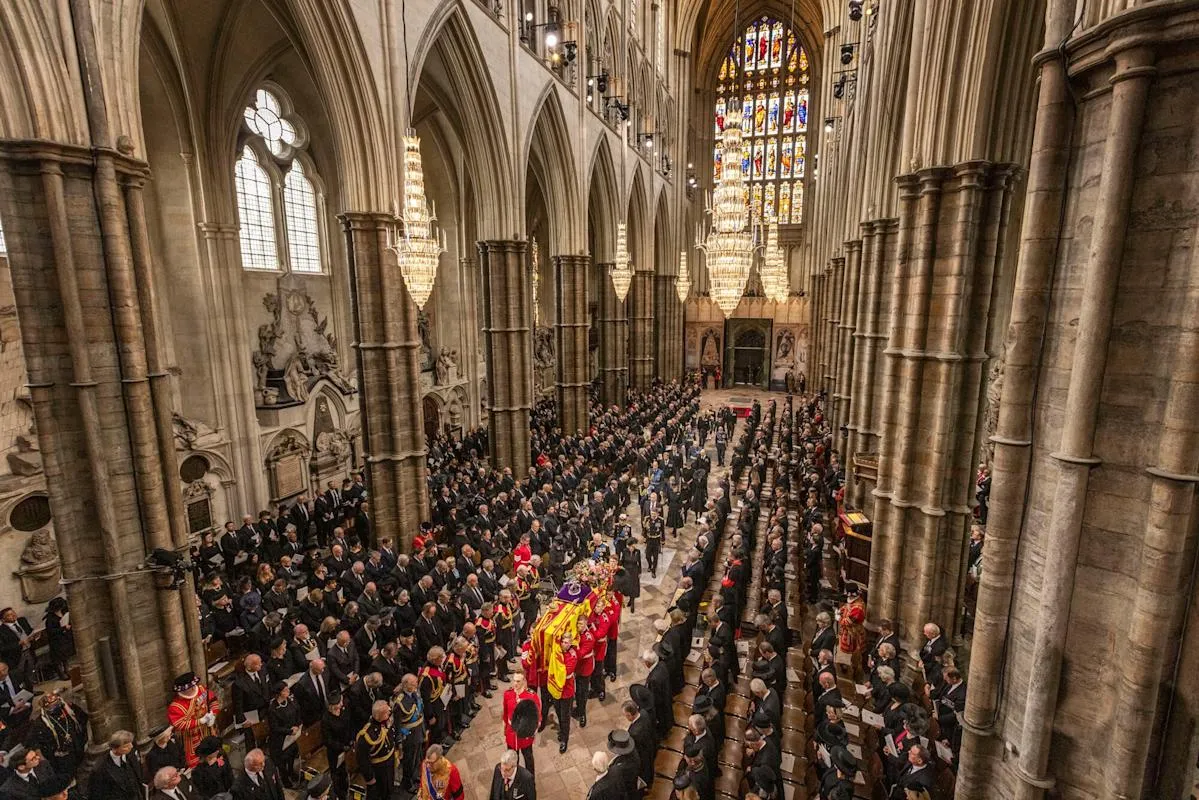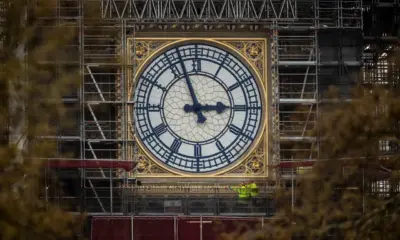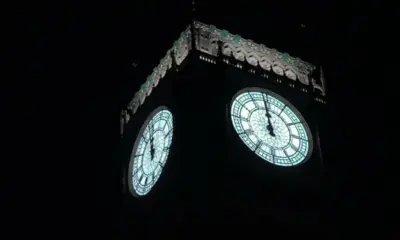Politics
Westminster Abbey Pilgrims Pay With Prayer Tokens

Faith meets fintech at the altar.
By James Porter – Political Satire Analyst
From Hymns to Hash Rates
Westminster Abbey has always been one of London’s most sacred landmarks. Crowds of tourists shuffle through chapels, pilgrims whisper prayers, and choristers sing under stained-glass light. But according to viral rumours, worshippers can no longer simply donate coins or notes. Entry and offerings are now allegedly managed through Prayer Tokens, a blockchain-based system pegged to divine engagement.
A TikTok clip that sparked the frenzy showed a tourist scanning a QR code on the Abbey’s donation box. The caption: “Transaction confirmed, prayer validated.”
Pilgrims in Confusion
Visitors accustomed to dropping coins into brass plates were baffled. One American tourist complained, “I just wanted to light a candle, not link my wallet.” Another viral reel showed a group of pilgrims chanting while their phones buzzed with “Faith stake confirmed.”
By Sunday, memes flooded Instagram of priests holding tablets flashing “Your blessing is pending.”
Fake or Real?
Polls revealed 54 percent believed the rumour. “Feels real,” one voter said. “Churches already ask for online donations.” Another argued, “Fake, but believable. Religion and money always mix.”
The plausibility turned the satire into gospel meme material, with hashtags like #PrayerToken and #ProofOfFaith trending.
Meme Avalanche
Memes spread like incense smoke. One viral edit showed a bishop sprinkling holy water over candlestick charts. Another depicted the Abbey’s grand altar glowing with Ethereum symbols.
Parody slogans included:
- “Stake your sins.”
- “Liquidity in liturgy.”
- “Proof of prayer confirmed.”
Camden Market quickly sold mugs reading “I tithed in Prayer Tokens.”
Top Comments from the Internet
- “Finally, divine intervention meets decentralisation.”
- “My prayer was rugged before it reached heaven.”
- “Proof of faith more stable than sterling.”
Clergy Respond
The Abbey issued no official comment, but parody press releases filled the void. One fake announcement read: “Spirituality deserves blockchain validation.” Another circulated screenshot claimed pilgrims could “upgrade to Premium Prayers” for higher yields.
Even satirical sermons emerged online, with a parody priest declaring, “The Lord accepts Dai and USDC.”
Why It Resonates
The rumour resonates because faith institutions have long been linked to money. Donations, tithes, and offerings fund ceremonies, upkeep, and clergy. Turning that into Prayer Tokens simply makes the connection absurdly explicit.
An LSE theologian quipped, “Prayer Tokens are satire that works because religion already functions like a trustless system—belief validates value.” The line itself went viral, paired with stained-glass memes.
Satirical Vision of the Future
Imagine all sacred sites tokenised. St Paul’s Cathedral requires NFT choir passes. Canterbury Cathedral is minting relics as collectables. Even Lourdes distributes Holy WaterCoin with every pilgrimage.
A parody TikTok circulates showing pilgrims kneeling while subtitles read “Block confirmed at Psalm 23.” The video racked up half a million views in a day.
Pilgrim Reactions
For worshippers, the rumour was equal parts blasphemy and hilarity. One man tweeted, “I prayed for forgiveness, then paid a gas fee.” Another TikTok showed a nun tapping a QR code on a candle with the caption “Faith on-chain.”
Tourists joined in, buying parody prayer cards with embedded QR codes. Many joked they would “hodl their blessings.”
The Bigger Picture
Behind the laughter lies commentary on how spirituality is commercialised. From televised services to megachurch donations, faith often collides with money. Prayer Tokens satirise this relationship, exposing how even religion could be financialised in the name of modernisation.
Cultural critics argue the rumour struck a chord because it mocks the tension between sacred and secular. It is absurd, but no more absurd than online sermons with PayPal links.
Conclusion
Whether Westminster Abbey really charges Prayer Tokens doesn’t matter. The rumour has already been sanctified in London’s meme economy, turning devotion into speculation. For some, it is comedy. For others, it is uncomfortably close to the truth.
So the next time you enter the Abbey, don’t just bring reverence. Bring your wallet app. Because in 2025, even prayers might cost a transaction.
By James Porter – Political Satire Analyst
james.porter@londonews.com



















